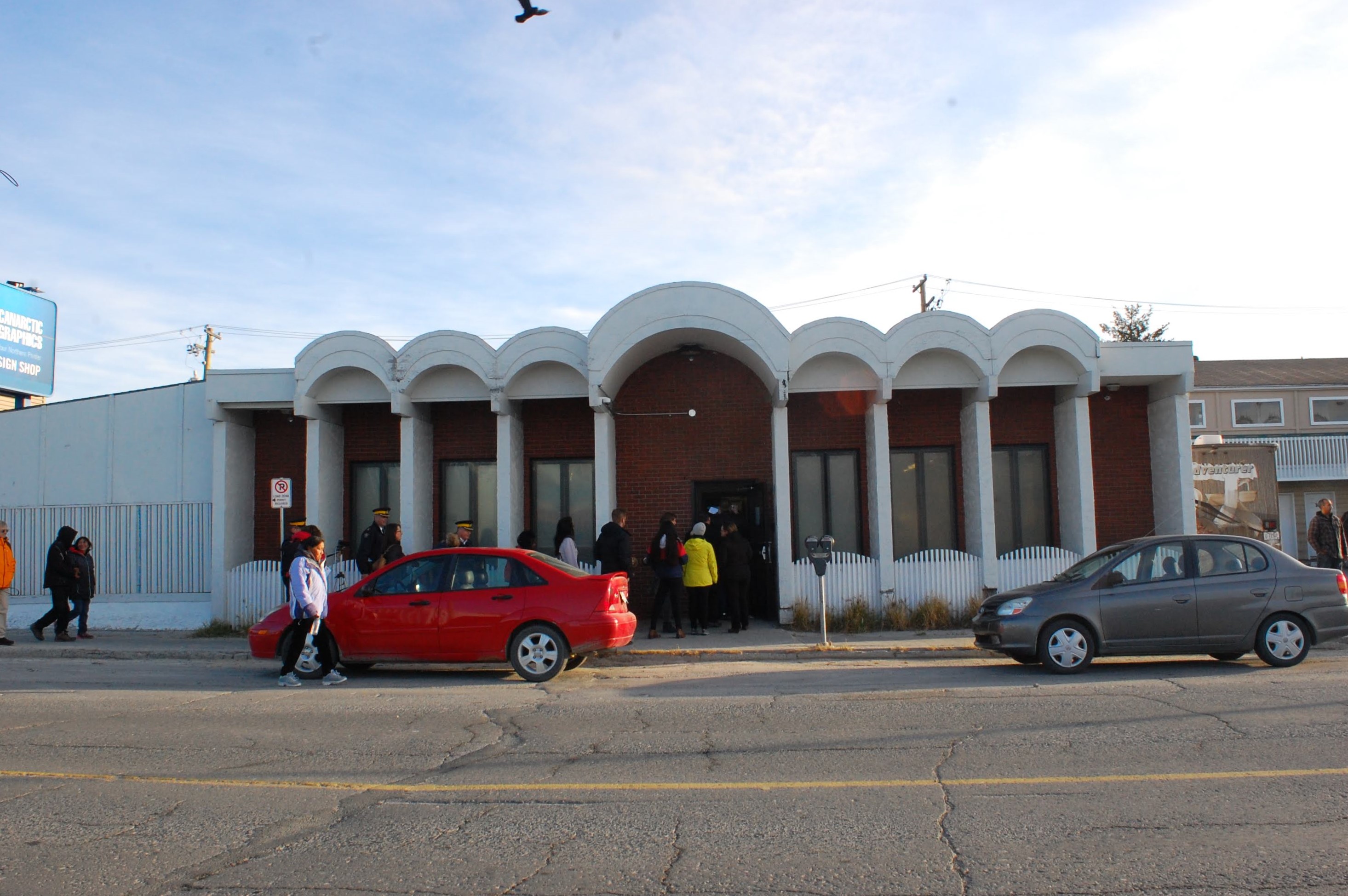The NWT Health and Social Services Authority released a program evaluation focused on evaluating the existing design and implementation of the Combined Day Shelter and Sobering Centre.
The report states that the centres should have more activities, employ addictions and family counsellors, expand medical and social services, provide a service model to promote continuity amongst other things. The current location and its proximity to the Liquor Store was also identified as a key problem.
The NTHSSA stated in a release that the evaluation was completed to determine a clear path forward and will inform future improvements to the operations of the center. The evaluation includes both short-term and longer-term recommendations such as:
Lack of Programming at Day Shelter
- Short-term Consideration:
• Develop programming activities in the Combined Centre, - Long-term Considerations:
• Develop and implement a Structure Harm Reduction Program,
• Implement Expanded Medical and Social Services,
Gaps in Physical Infrastructure
- Short-term Consideration:
• Increase surveillance outside of the Combined Centre, - Long-term Consideration:
• Provide clients with outdoor space,
• Create dedicated spaces for sober clients,
Staffing Resources
- Short-term Considerations:
• Introduce a formalized peer-support role,
• Formalize role of Elders in the Combined Centre,
• Increase existing capacity,
• Increase availability for staff training, - Long-term Considerations:
• Establish a dedicated medical team,
• Create positions for Addictions and Family Counsellors,
Lack of collaboration and integration of services
- Short term consideration:
• Formalize partnerships with community agencies, - Long-term Consideration:
• Provide an integrated service model to promote continuity of care,
Lack of collaboration and integration of services
- Short-term Consideration:
• Develop communication tools to promote the mandate and goals of the Combined centre, - Long-term Consideration:
• Engage in public education.
Sue Cullen, Chief Executive Officer of NTHSSA stated that the challenge now is to continue to improve this program in the best way and adding the necessary supports to help clients find wellness in a way that works for them.
“We know that the day and sobering centre is an essential service and that providing additional supports to community members struggling with addictions, homelessness, and mental health issues is the right thing to do. This evaluation will help us advance this work and improve our community.”
Data provided by the NWT Disabilities Council also provides insight into the demographics of clients accessing the shelter. Of the 70 Day Shelter clients who provided demographic information, 44% self-identified as Dene, 23% self-identified as Inuit, another 23% as First Nation and the remaining 10% of clients identified as Non-Indigenous.
72% of the clients were male and just 28% were female, however, program staff reported increases in female clients in recent months. It was noted that the perceptions of the Combined Centre have shifted so now it is being considered a safe space for women to go to access services that may not be able to access at the Women’s Shelter.
34% of clients accessing the shelter at this time were between the ages of 50 and 59, followed by 28% who were between the ages of 40 and 49. The council states that the proportion of individuals between the ages of 40 and 59 accessing the Centre will continue to increase due to limited housing options for seniors in Yellowknife.
The report does states that the evaluation did not seek to directly address the need for broader mental health and addiction treatment services within Yellowknife and the NWT. This provides a limitation in extracting findings and identifying key considerations to inform the broader mental health and addiction system within the Territory.
Several recommended actions in the evaluation will be implemented more immediately according to the NTHSSA including:
- Adding a “street-patrol” staffed by Sobering and Day centre staff to create a visible presence, help manage foot traffic in the area, and notify appropriate authorities for intervention if required.
- Implementing additional programming, including culturally relevant activities and programs, to engage users of the services in a positive way and develop avenues for healing and wellness. This work will be undertaken in partnership with local organizations where possible. There will be a formal consultation with clients to determine the types of cultural activities that they would like to have implemented.
- Piloting a new initiative with the Arctic Indigenous Wellness Foundation that offers healing camps for clients. These camps will enhance the current programming offered at the centre and will be facilitated by two new staff members.
- Looking at formalizing a peer-support role, through partnership, volunteers, and/or current staff.
- Enhancing the involvement of elders in programming, including examining the possibility of an elder-in-residence program for the centre.
- Creating more training opportunities for sobering centre staff to build capacity in service delivery.
- Working towards integrating additional outreach services at the centre
The Day Shelter and Sobering Centre were combined into one newly renovated permanent location downtown on 50th Street in September of last year. The combined facility is open 24 hours a day and seven days a week.




